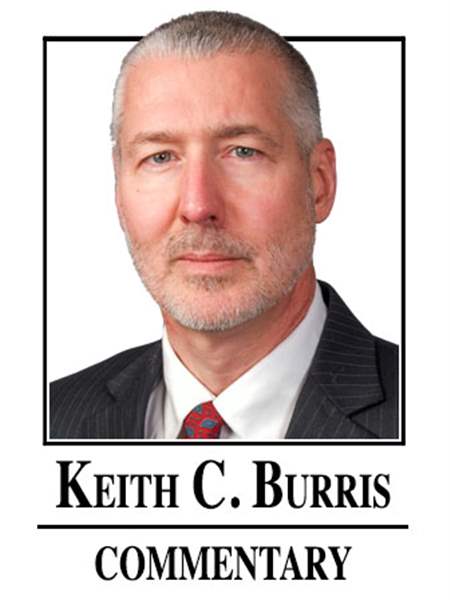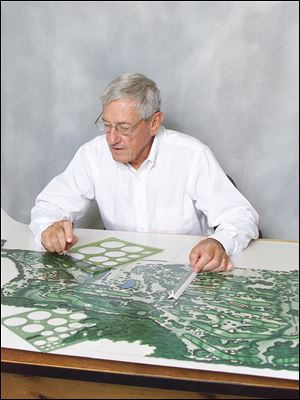
The needs of the community
9/11/2017
THE BLADE
Buy This Image

My sister Margaret lives in Houston. We are not always in close touch, but we have been lately. I don’t know whether it was she or another family member who said what a lot of people are saying these days: Too bad it takes adversity and tragedy to pull people together.
The worst times show the best of us. Strangers become neighbors. Heads of government become heads of state. Mall walkers become citizens. Ordinary people become heroes.
Remember when George W. Bush, standing on the rubble at Ground Zero, said to first responders, “I can hear you”?
Remember when Chris Christie and Barack Obama walked arm in arm through the damage of Hurricane Sandy? Mr. Christie took heat for it, but it was real. So much more real than the stupid posturing on the cable news and talk shows.
I thought Chuck Schumer and President Trump making a deal last week was real. The President thought there should be a show of unity on hurricane relief, so he cut a deal with Democrats on raising the debt limit. Republicans were furious. But something got done. And one dared to think: These two combative New Yorkers can accomplish things — like infrastructure rebuilding in the great Midwest, in Appalachia, and in the forsaken regions of upstate New York.
Forget the politics. Cut some deals. Help the people; serve the country.
Institutions — corporations, churches — and human associations — families, political parties, farm worker unions — need a certain amount of adversity to occasionally renew and reaffirm their core values.
World War II was horrific. It produced the Greatest Generation. The wars in Vietnam, Iraq, and Afghanistan tore the nation apart, but our bravest warriors, survivors, and some of our finest young leaders came out of those conflicts.
Does it take the great flood to pull Americans out of the intellectual morass of CNN and Fox?
Maybe.
How do we hang on to this rare feeling that seems to come with adversity? The feeling of collective courage, clarity, and brotherhood.
I am tempted to say: Turn off the TV. Listen to music. Take a walk. You might be able to see a neighbor as a neighbor, not as part of the “the other side.”
But there is something else that can nurture citizenship. And that is community — local and immediate community. Edmund Burke called the constituent parts of community “the little platoons.”
Any time people band together to help each other in small groups, neighborhood groups, citizen groups, the soil of democracy is fed.

Arthur Hills is a legend in the field of golf course design. He has built some 225 courses and restored another 150.
Last week I met a classy and civilized fellow named Arthur Hills. Mr. Hills, born in the same year as my father in 1930, and more or less retired now, is one of the premier golf course architects in the world. Indeed, he is something of a legend in his field. He has built some 225 golf courses, (including one for Donald Trump) and restored another 150 (including Inverness during its last redo). The names of some of his courses resonate with golfers — Ironhorse and Ironbridge and Oakmont. And he’s Toledo’s own (with detours to Michigan for part of high school and then college in Ann Arbor). He started golfing at 7 at Ottawa Park and paid 26 cents for a round of golf before noon.
Mr. Hills is the quintessential American self-made man — having started as a landscaper, graduated to landscape architecture, and from there to building golf courses. His first, in 1964, was what is now Brandywine and was first known as Byrnwyck. He thought he could do the job because he knew golf and that it would give him some work in the winter months.
His is an amazing success story and it interests Mr. Hills not much at all. He has loved his life. He is deeply grateful. And he loves golf. But he didn’t want to tell Trump or Tiger stories on the day we met. He wanted to talk about the Historic South Initiative — a voluntary organization in the South End that works on rehabbing homes, finding qualified buyers for those homes, and tutoring kids.
Downtown Toledo gets the press, but the South End — with a number of citizen initiatives, by Adelante, the FLOC Homies Union, a new medical clinic and credit union — Compassion Health Toledo — and Historic South, is reinventing and revivifying itself.
Historic South is restoring a few houses a year now. Mr. Hills would like to see 35 or 40 a year. He told me of a person who sits on the board of the organization with him who grew up in the old South End and still lives there today, though this person could live in Ottawa Hills. He mentioned that he himself works in the tutoring program, “though that’s not relevant to your article.”
Yes, it is. Anyone can talk the talk. Only a few walk the walk and actually tutor or mentor or hammer nails. Ex-congressman Ed Weber is another great Toledoan who tutors kids in an “emerging neighborhood,” in his case in the central city.
Arthur Hills said this: “Who wants to hear about golf, really? It’s nothing compared to the needs of the community.”
My cousin Caryn lives in Miami. On Thursday, she and her family were caravanning to Orlando.
What does calamity show us? The needs of the community.
Edmund Burke wrote this: “To be attached to the subdivision, to love the little platoon we belong to in society, is the first principle (the germ as it were) of public affections. It is the first link in the series by which we proceed towards a love to our country and to mankind.”
Keith C. Burris is editorial page editor of The Blade. Contact him at: kburris@theblade.com or 419-724-6266.